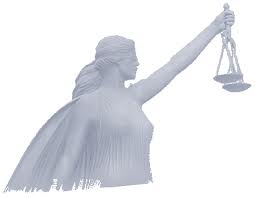Copyright vs. Patent Protection for Inventors
Inventors, did you know some of your work is automatically protected upon creation? And that other work requires specific documentation to make sure nobody steals your intellectual property?
This commonly overlooked yet major detail is the difference between copyright and patent law. As a Fort Lauderdale Patent Attorney, I am often asked by inventors to explain the differences between the two avenues of protection. Understanding the subtle differences is the key to making sure only you profit from your hard work.
Here are the details…
Copyright Law
A Copyright is a set of exclusive rights granted to the creator of an original work (ge nerally written, artistic, or intellectually produced material) including the right to copy, distribute and adapt the work.
nerally written, artistic, or intellectually produced material) including the right to copy, distribute and adapt the work.
Examples of copyright material are maps, books, paintings, photographs, music, movies and software.
To "copyright" material, you must simply place the copyright icon in front of a copyright statement and is adequate protection for copyright laws. You do not have to register copyrighted material with the U.S. Copyright Office. However, there are a number of very important advantages to registration and it is highly recommended that registration be obtained.
Patent Law
A Patent is a set of exclusive rights – such as the right to prevent others from making, using, selling, or distributing the invention without permission – granted by a governing body for a limited period of time.
 Whereas copyrights apply to intellectual property, patents generally cover physical inventions. Because of this, patent laws require you to show the patent office how your invention is new, non-obvious and useful.
Whereas copyrights apply to intellectual property, patents generally cover physical inventions. Because of this, patent laws require you to show the patent office how your invention is new, non-obvious and useful.
There are multiple ways to do this (and they vary from country to country, check with a local patent attorney), but almost every patent application includes…
- Who the inventor is
- Claims to what the invention does
- Drawings of the invention
- Specifications (how it works, how you invented it, etc.)
Do you need a copyright or a patent?
The answer to that question depends on what you plan to do with your invention. You can…
Sell or lease your patent to an existing company – The plus side to this approach is that you can avoid the hassles of running a business and simply cash in on your ideas.
…or…
Build a business around your patent and keep the lion’s share of profits to yourself. If you decide to go down this route, make sure you take the proper steps to copyright all of the marketing materials required to sell your product to the public.
A patent will protect your invention. The copyright will protect your promotional materials, advertising, logos and even the musical jingles required to sell your invention to the public.